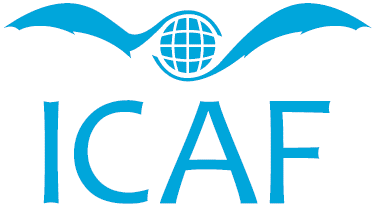Test and analysis of fuselage structure to assess Emerging Metallic Structures TechnologiesPaper: PPT: Session: Session 13: Full-scale fatigue testing I Room: Theatre room: plenary Session start: 13:30 Wed 28 Jun 2023 Yongzhe Tian yongzhe.tian@faa.gov Affifliation: FAA Dave Stanley dave.stanley@faa.gov Affifliation: FAA John Bakuckas john.bakuckas@faa.gov Affifliation: FAA Kevin Stonaker kevin.stonaker@faa.gov Affifliation: FAA Mike Kulak mkulak12@comcast.net Affifliation: Diakon Solutions LLC Erin Fulton erin.fulton@arconic.com Affifliation: Arconic Technology Center Walt Sippel walt.sippel@faa.gov Affifliation: FAA Marcelo Rodrigues marcelo.bertoni@embraer.com.br Affifliation: Embraer Fabricio Fanton fabricio.fanton@embraer.com.br Affifliation: Embraer Carlos Chaves carlos.chaves@embraer.com.br Affifliation: Embraer Topics: - Full-scale fatigue testing of aircraft and aircraft structural components (Genral Topics) Abstract: In partnership with Arconic and Embraer, the Federal Aviation Administration (FAA) is assessing emerging metallic structures technologies (EMST) using the FAA’s Full-Scale Aircraft Structural Test Evaluation and Research (FASTER) facility. In this collaborative effort, full-scale fuselage panel test data will be used to assess the effect of EMST fuselage concepts on damage tolerance performance as compared to the current baseline aluminum fuselage structures located on the crown of a typical single aisle aircraft forward of the wing. Several technologies will be considered, including advanced aluminum-lithium (Al-Li) alloys and selective reinforcement using fiber metal laminates. Data from this study will be used to verify improved weight and structural safety performance of the EMST and will also be used to assess the relevance of existing regulations and to inform whether additional safety standards and regulatory guidance should be developed to provide improved safety beyond that afforded by the existing airworthiness standards. Initial efforts focused on the first baseline panel, consisting of Al-clad 2524-T3 skin and conventional 7000-series aluminum substructure assembled through riveting. Results from baseline panel 1 test were presented at ICAF 2019, and will be compared to future tests on advanced panels containing varying EMST to see if there are improvements in damage tolerance capabilities. In the latest fuselage panel tests, investigations continue in the assessment of advanced alloys. This includes panel 2 and panel 3, consisting of 2060-T8 Al-Li and 2029-T3 clad aluminum skins, respectively. Both of these panels were stiffened with integral frames made of 2099-T83 Al-Li and stringers made of 2055-T84 Al-Li. A predominant challenge throughout the testing program was to develop an approach to account for small differences in final panel-to-panel chem-milled skin thickness, which met manufacturing tolerances but resulted in significant skin stress intensity differences for these thin skin gage panels. Results from first three panels are presented in this paper, summarizing experimental and analytical procedures and results demonstrating improvements in damage tolerance performance using advanced alloys, the challenge encountered, and lessons learned. |

ICAF 2023
Delft, The Netherlands, 2023